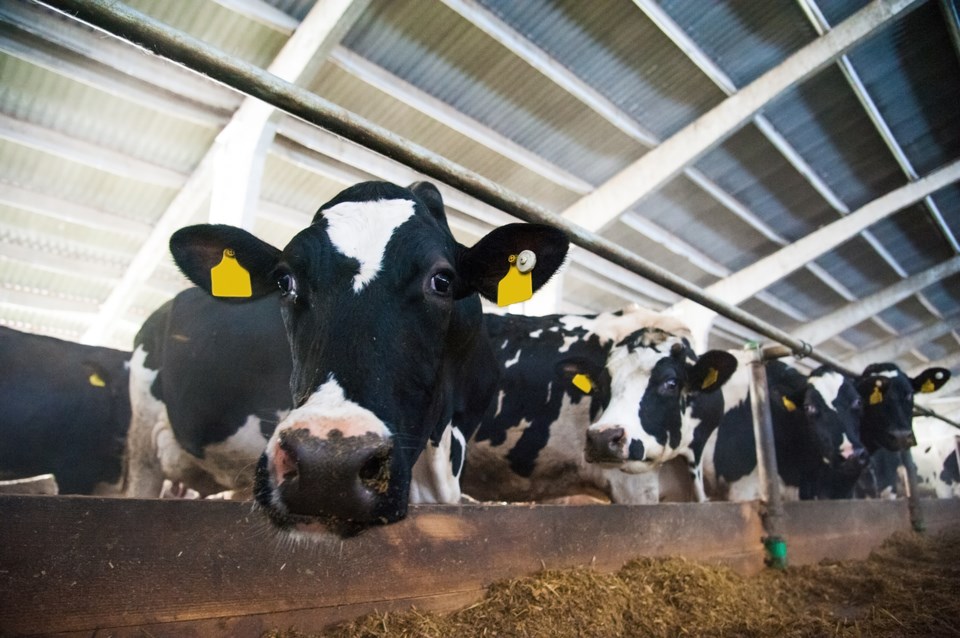You’d think that being able to spend your day chewing your cud would lead to a pretty stress-free life.
Not for some cows.
A UBC study says that cows can be born inherently optimistic or pessimistic and that affects their overall view of life — just like humans.
“Calves that were more fearful were also more likely to view the glass as half empty,” says professor Marina von Keyserlingk.
She led a research team from the university’s animal welfare program. They set up an experiment involving 22 calves.
They first trained the calves to understand which of their choices would lead to a reward.
In a small pen, there was a wall with five holes arranged in a row. The hole at one end contained milk from a bottle. The hole at the opposite end had an empty bottle; when the calf went to investigate, it also got a puff of air in its face.
The cows quickly learned which end of the wall to go to.
Thus aware that life has choices and rewards, the study kicked it up a notch. The researchers put a bottle in one of the three intermediate holes. But which hole offered the reward of milk, a calf might ask.
“The researchers predicted that the most optimistic calves would approach the bottle even it were positioned close to the location that earlier gave them an empty bottle and puff of air,” a UBC press release says.
“In contrast, the most pessimistic calves would avoid approaching a bottle in the intermediate holes, even if it was close to the rewarded location.”
Three weeks later, the calves made similar choices. “Researchers concluded that pessimism was a consistent individual trait, not just the result of temporary moods or emotions.”
Along with determining that some cows are born pessimistic, the study showed that, when exposed to unfamiliar situations, there’s a link between being pessimistic and fearful.
This link has long been recognized in humans but the research opens the barn door to new understanding of bovine behaviour.
“The next step in our research will be to understand what type of rearing conditions help ensure that an individual animal has a good life,” von Keyserlingk says. “For example, more pessimistic calves may require different types of housing and management than we currently provide.”
PhD candidate Benjamin Lecorps was lead author of this study, which was published last month in Scientific Reports. von Keyserlingk and Daniel Weary were co-authors.



